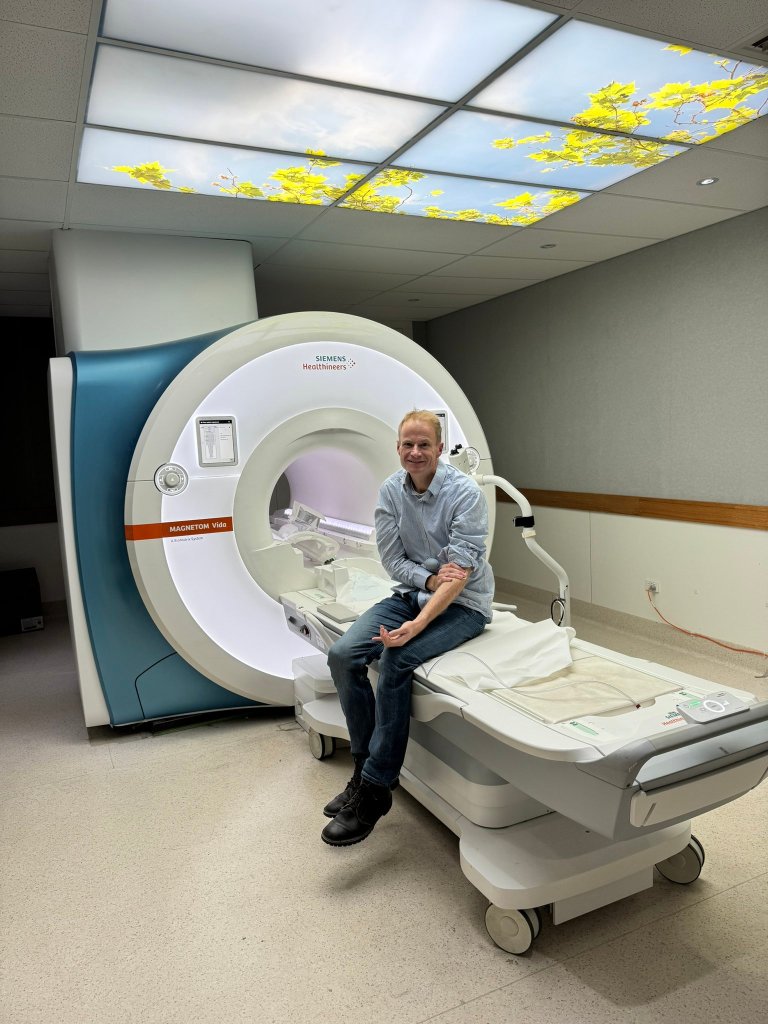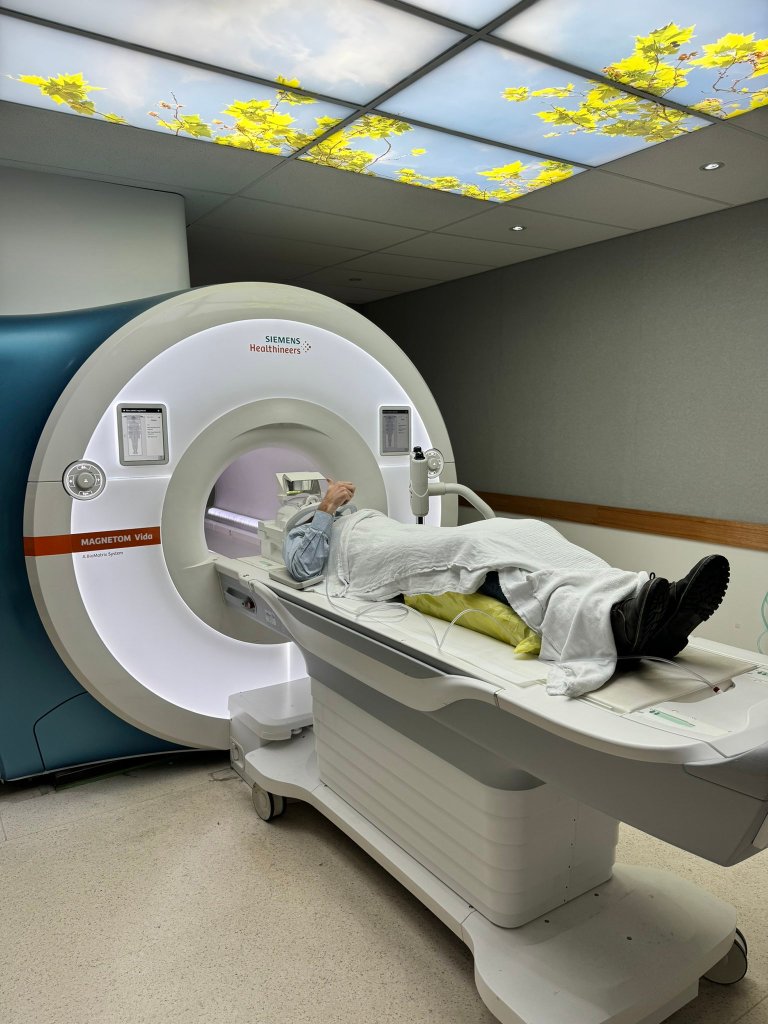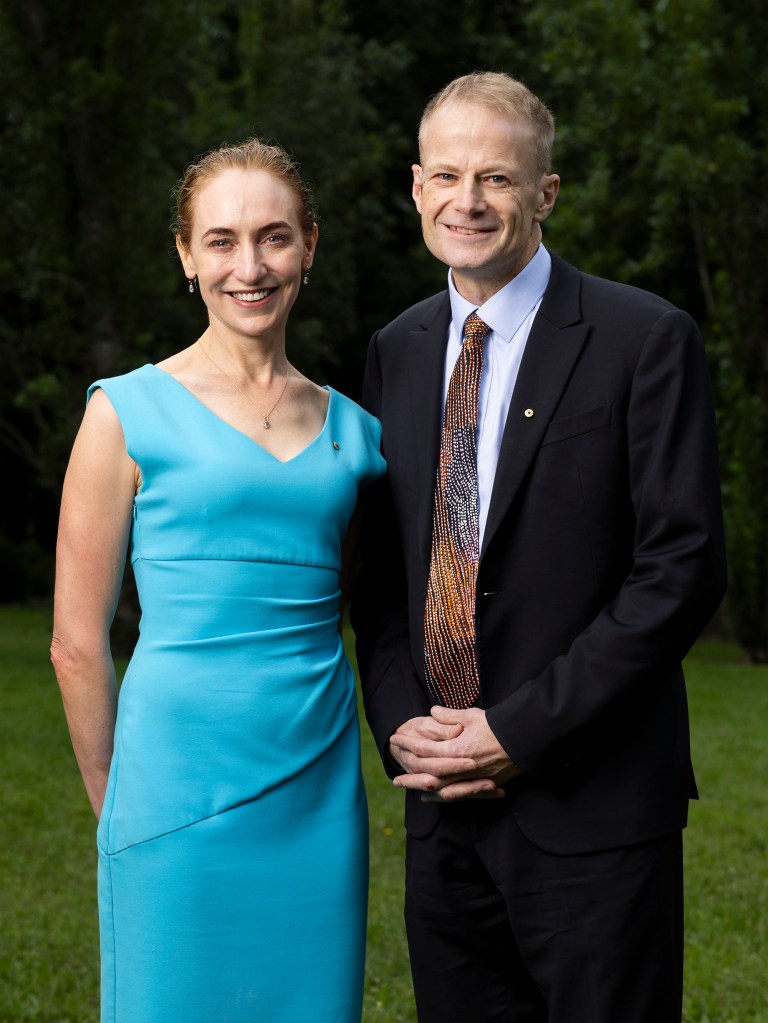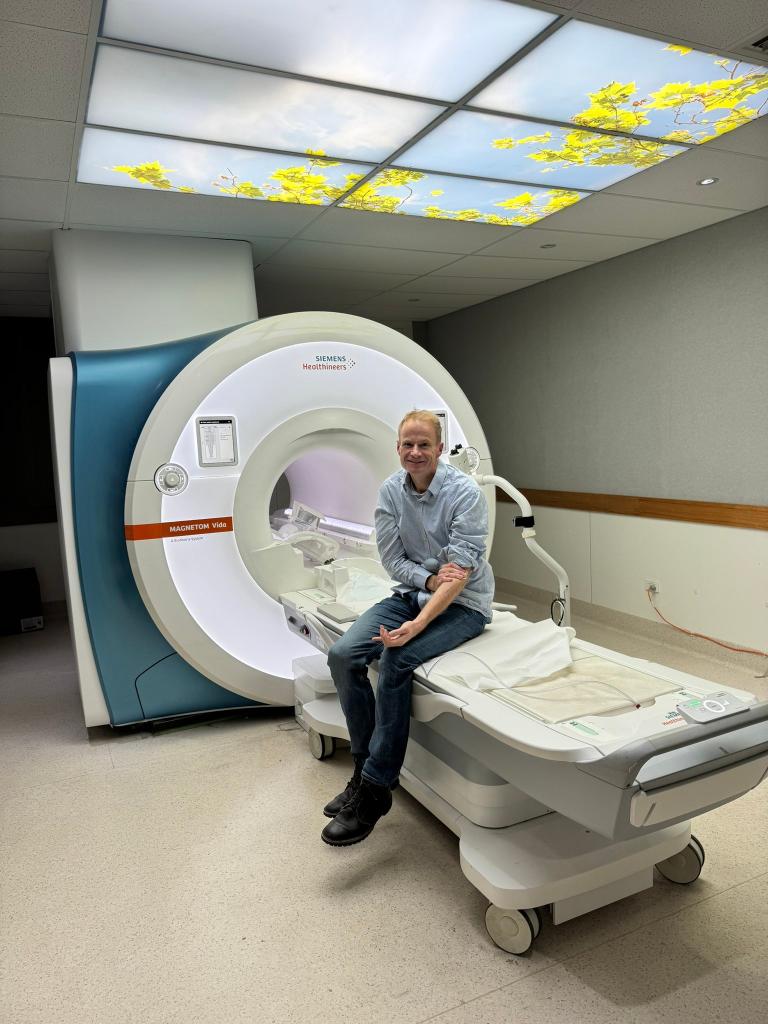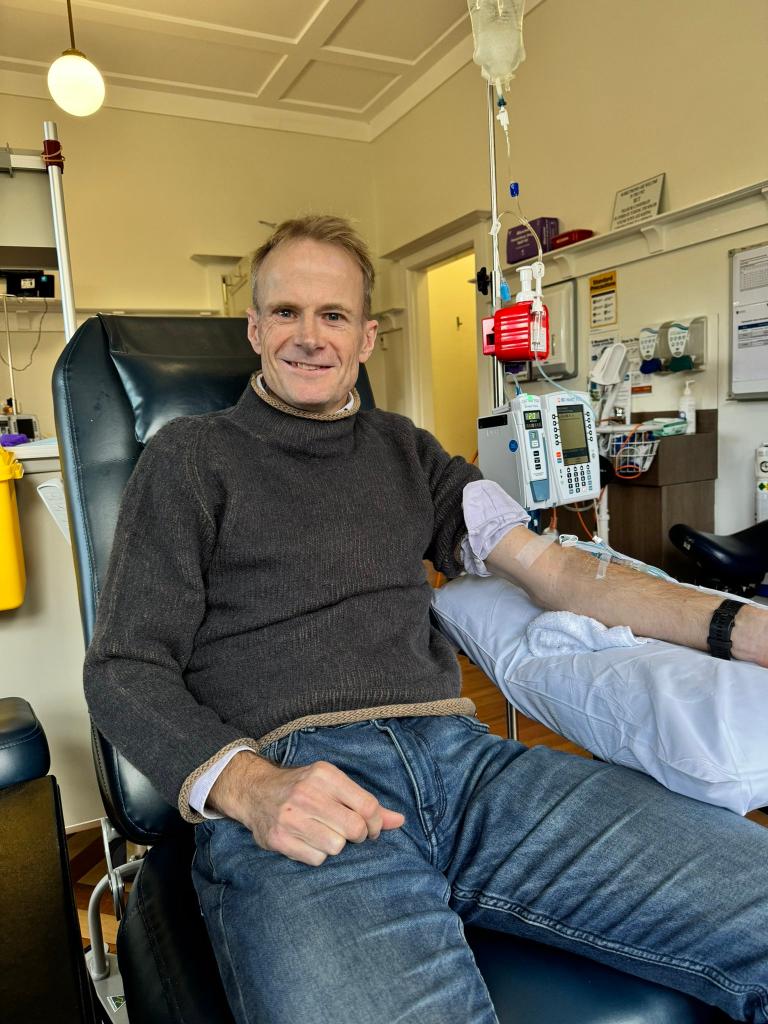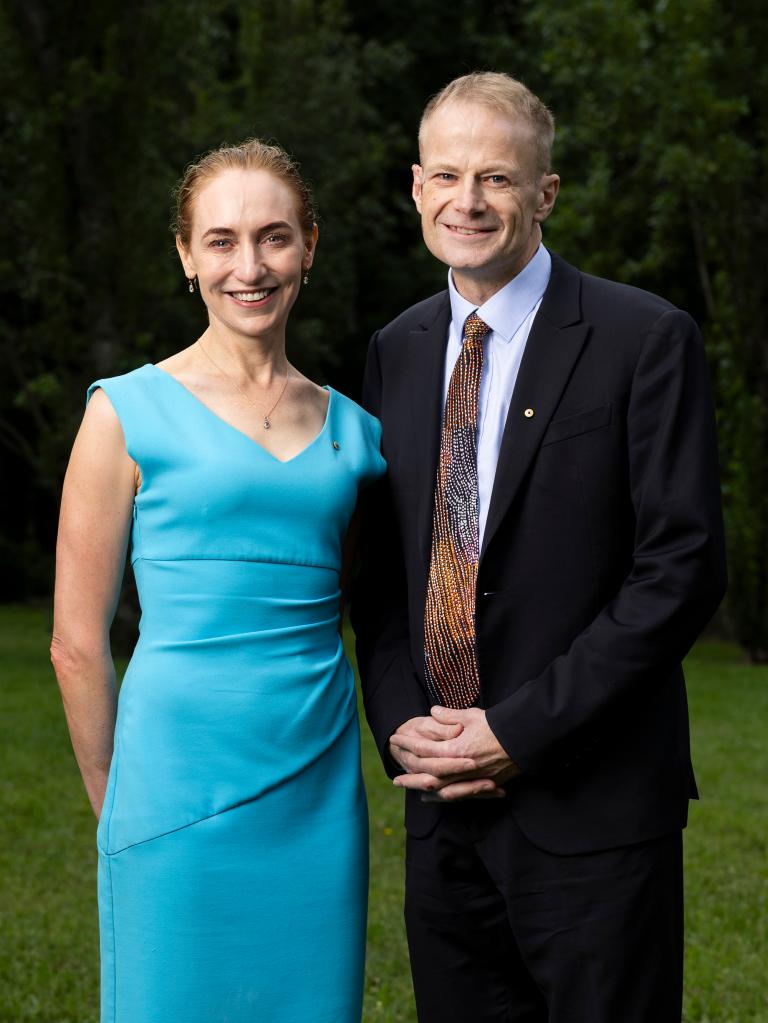Doctor Richard Scolyer cancer-free one year after using own revolutionary treatment on terminal brain tumor: ‘I couldn’t be happier!’
An Australian doctor who was diagnosed with a terminal brain tumor last year is cancer-free thanks to a first-of-its-kind treatment that he helped to develop.
Richard Scolyer, a professor at the University of Sydney, revealed Monday that the incurable stage 4 glioblastoma discovered in his head has not recurred after receiving the heartbreaking diagnosis last June.
“I had brain #MRI scan last Thursday looking for recurrent #glioblastoma (&/or treatment complications). I found out yesterday that there is still no sign of recurrence. I couldn’t be happier!!!!!” the professor shared on X.
In May 2023, the fit educator was traveling throughout Europe speaking at medical conferences when he suffered a seizure while in Poland.
Scolyer flew back to Australia, where he underwent an MRI that revealed he had a glioblastoma, an aggressive and terminal form of brain cancer, with his subtype being classified as so aggressive most patients don’t survive longer than a year, according to the BBC.
The pathologist, who is a director at the Melanoma Institute Australia, teamed up with his co-director, Georgina Long, to develop a treatment plan to help fight the deadly disease.
The duo’s decade-long immunotherapy research at the Melanoma Institute dramatically increased the outcome for advanced melanoma patients, which led to the pair to be jointly named the 2024 NSW Australian of the Year.
Taking the information discovered during the research of immunotherapy, or using the body’s immune system to attack cancer cells, Long and her team came up with the best results to help Scolyer’s fight, the use of a combination of drugs before surgery, the world’s first of its kind treatment.
After consulting experts, Professor Long decided on combination immunotherapy, which would be delivered before and after Scolyer’s surgery to remove the tumor.
Along with the combo immunotherapy, Scolyer was the first to be given a vaccine tailored specifically to his tumor’s characteristics, which would help boost the cancer-detecting powers of the drugs.
He also received six weeks of radiotherapy after surgery.
Scolyer’s treatment didn’t begin smoothly.
He suffered from epileptic seizures, liver issues and pneumonia over the first few months, but has since gotten better and has even returned to his daily routine including jogging a brisk 9.3 miles a day.
“I’m the best I have felt for yonks (a long-time)” Scolyer told BBC.
“It certainly doesn’t mean that my brain cancer is cured… but it’s just nice to know that it hasn’t come back yet, so I’ve still got some more time to enjoy my life with my wife Katie and my three wonderful kids.”
Scolyer has been documenting his medical journey, sharing each and every one of his MRI results including photos to his social media.







